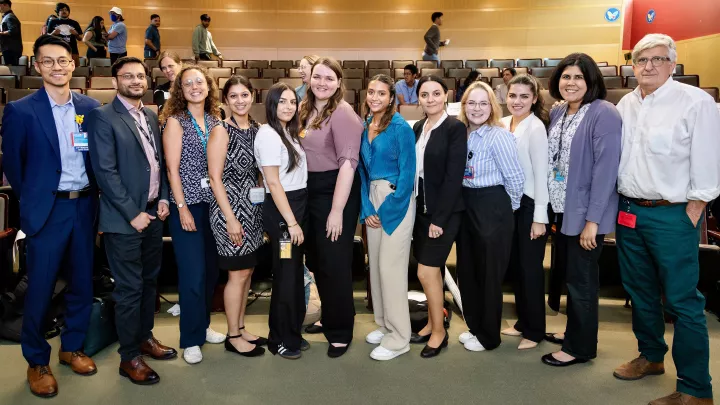KiNDD Lab: Research Studies
The Kids with Neurogenetic and Developmental Disabilities (KiNDD) Laboratory studies childhood developmental disabilities as well as neurogenetic disorders and syndromes that can lead to autism spectrum disorders and intellectual disability.
We conduct ongoing clinical studies in genetic syndromes, including:
ABC-CT−Autism Biomarkers Consortium for Clinical Trials
The ABC-CT longitudinal study examines sensitive and reliable measures that can be used in future clinical trials to objectively measure social impairment in individuals with autism spectrum disorders (ASD).
LISTEN Study
Electrophysiology correlates of language processing in minimally verbal children with neurodevelopmental disorders: Elucidating pathways to language impairment (autism spectrum disorder)
The LISTEN study uses behavioral and brain-based measures, such as electroencephalograms (EEG), to develop assessment tools and identify biomarkers specifically for minimally verbal children with neurodevelopmental disorders. The tools will not rely on a child's ability to understand directions or produce an intentional response.
JETS−JASPER Early Intervention for Tuberous Sclerosis Complex Study
The JETS−JASPER study examines the effects of early behavioral intervention (JASPER) on developmental outcomes in infants and toddlers with tuberous sclerosis complex with a focus on social communication skills.
EEG Biomarkers of Language in Angelman Syndrome
EEG allows researchers to study the dynamics of neural networks and analyze electrical activity in infant brains. For approximately 15 minutes, the patient will wear a mesh cap with small, non-invasive sensors that measure brain signals in response to videos, sounds and images.


